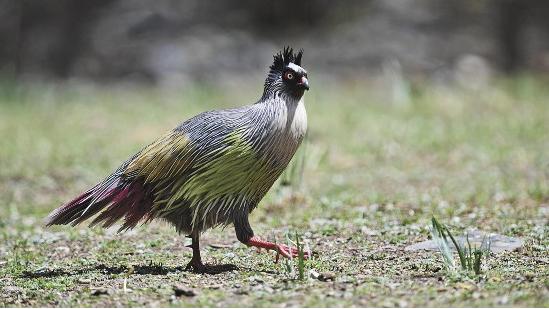Chinese researchers uncover new microbial species aboard space station
BEIJING, May 20 (Xinhua) -- Researchers have announced the discovery of a new microbial species in China's space station for the first time, naming it Niallia tiangongensis, according to the China Manned Space Agency (CMSA).
As one of Earth's most ancient and diverse life forms, microorganisms are minuscule yet ubiquitous. The newly discovered species represents previously unknown microbes that had never been documented or studied by scientists.
The space station's unique environment, characterized by microgravity, radiation, confinement and nutrient limitations, has long fascinated researchers due to its potential for harboring unknown microbial species.
In May 2023, the Shenzhou-15 crew collected surface microbial samples using sterile wipes, preserving them at low temperatures in orbit. Subsequent ground analysis revealed the novel Niallia tiangongensis species, confirmed through multidisciplinary methods including morphological analysis, genome sequencing, phylogenetic studies and metabolic profiling, the CMSA said.
Microorganisms employ unique biological mechanisms to adapt to space environment stresses, which in turn shape their metabolic and physiological characteristics.
Niallia tiangongensis demonstrates exceptional stress resistance, maintaining cellular redox balance and ensuring robust growth in extreme conditions by regulating bacillithiol (BSH) biosynthesis to counteract space-induced oxidative stress, according to the CMSA.
It exhibits distinctive capabilities in biofilm formation and radiation damage repair, making it a highly adaptable "all-rounder" for space environments.
This discovery offers new scientific insights: the new species adaptation mechanisms could inform targeted microbial control strategies with applications in aerospace, agriculture, industry and healthcare. Additionally, its ability to utilize organic compounds suggests promising pathways for sustainable resource use.
As China's space station continues long-term operation, researchers anticipate significant advances in studying microbial bioactive compounds, genetic resources and metabolic functions, potentially yielding substantial benefits for Earth-based scientific and practical applications.
The related scientific findings were published online in the International Journal of Systematic and Evolutionary Microbiology.
Photos
 SW China's Yunnan launches over 1,000 new varieties of China roses with Chinese styles
SW China's Yunnan launches over 1,000 new varieties of China roses with Chinese styles Man turns birdwatching into booming business in NW China's Qinghai
Man turns birdwatching into booming business in NW China's Qinghai Over 30,000 overseas Chinese trace their ancestry to small town in SW China's Yunnan
Over 30,000 overseas Chinese trace their ancestry to small town in SW China's Yunnan Traditional fitness practices gain popularity among young people
Traditional fitness practices gain popularity among young people
Related Stories
- China's CERES-1 rocket launches new satellites from sea
- China prepares to launch Tianwen 2
- Sofia science festival opens with global talent, spotlights China's space exploration
- China achieves first daytime laser ranging test in Earth-moon space
- Space rescue: Chinese astro-engineers share a satellite-saving mission that spans 123 days and covers 8.5 million kilometers
Copyright © 2025 People's Daily Online. All Rights Reserved.





